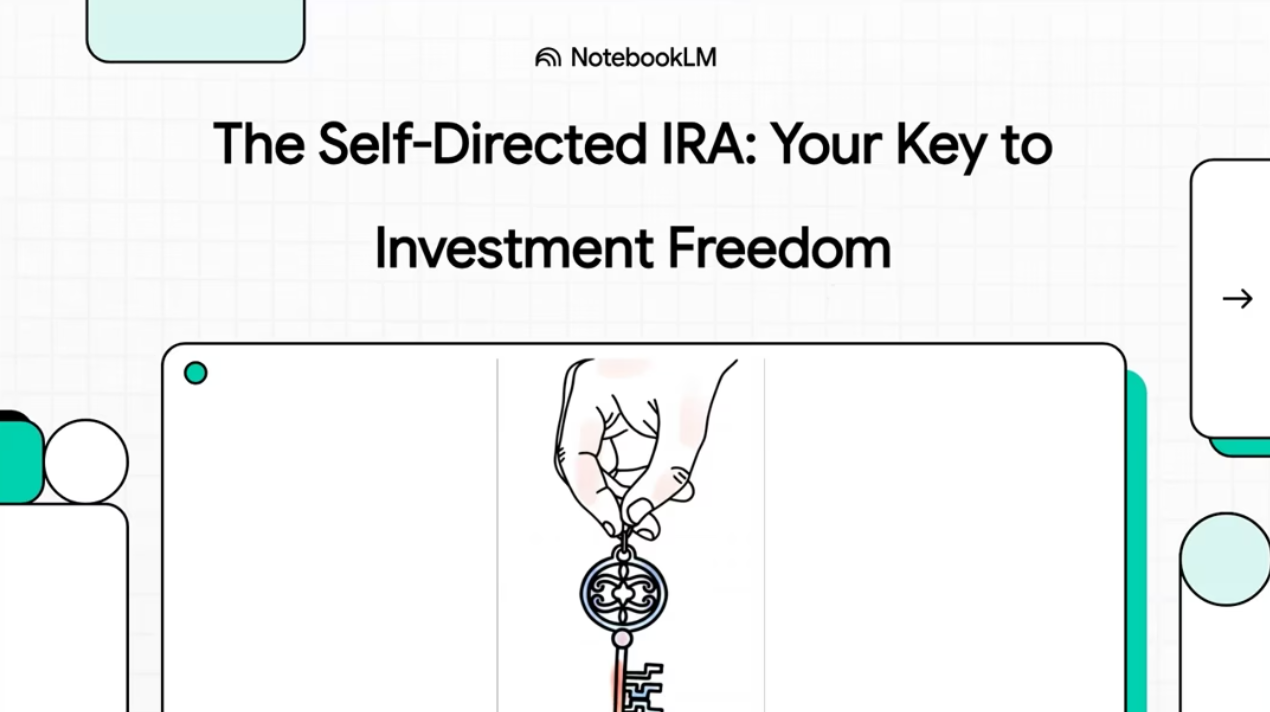Tips for Screening Renters for your IRA Property

There are many factors that can impact the profitability of a rental property owned by your self-directed IRA or Solo 401(k).
While location, amenities, purchase price and prevailing rents are all important, a huge impact on your property’s bottom line relies on finding and keeping quality tenants.
With good tenants, you can reduce your risk for any potential headaches and turnover costs like repairs and vacancy. And the less often you have to find and replace tenants, the better the results for your investment’s bottom line.
Online forums like Craigslist are awash with people looking for homes and apartments to rent. But what’s the secret to finding and retaining quality tenants who will take good care of your property?
Here are 4 tried-and-true methods to increase your chances of finding quality renters for your IRA property.
Quality Marketing
The search for a tenant starts with getting your phone to ring or emails in your inbox.
You don’t just want to be flooded with interest — you want to spend your time with potential tenants who will be well suited to your property.
Make sure to include high-quality photos in your listing to attract interest. But before you snap the picture, ensure your property is properly staged to highlight its unique features.
It’s also important to make your rental terms a clear from the start.
Your advertising should include key factors like the monthly rent, expected lease term, deposit requirements and any other key considerations like maximum number of tenants and more.
If you allow pets, be clear about what type and how many. If no pets are allowed, make that clear.
The more effectively your listing answers the basic questions that most renters will have, the more likely you are to hear from only qualified tenants.
Pre-Showing Questions
Prepare a list of questions to ask during your first meeting with a potential tenant. This will help ensure that you only spend time for showings with viable candidates.
Be sure to ask all candidates the same questions to avoid any perception of discrimination. Some of the common questions you might include are:
1. Why are you moving?
A lot can be learned about a potential tenant from the answer to this question. Are they moving for a normal reason, like a job change or needing more space? Or are they moving because of difficulties in their current situation, like an eviction or conflict with their current landlord or neighbors?
2. When is your preferred move-in date?
There are two good reasons for this question: first, there’s compatibility with the availability of your rental. Second, a responsible tenant will plan ahead, while someone with an urgency to move may have issues (unless there is some reasonable outside factor, like an unexpected job change).
3. What is your monthly income?
A common rule of thumb is that a tenant’s gross income should be at least 3 times the monthly rent.
4. Can you have the required deposit and first month’s rent available at move-in?
A tenant who can’t cover the initial move-in cost probably doesn’t belong in your rental. There will more than likely be financial issues down the road if they don’t have the necessary resources on day one.
5. Do you have any pets?
If you don’t allow pets, this one is a conversation-ending question for prospective tenants with pets. If you do allow pets but have restrictions, this is your opportunity to make sure the tenant will fit within those guidelines.
6. Will you consent to a credit and/or background check?
Some form of screening is highly recommended. If the candidate won’t consent to a credit or background check, then they should be disqualified.
7. How many tenants will there be?
You and/or your city or HOA may have restrictions on the number of tenants. The higher the number of tenants, the higher the expected level of wear and tear on the property.
8. Have you or any of the other tenants been evicted?
This question can tell you a lot about a potential renter.
There’s no guarantee that you’ll get a truthful answer. But if the candidate is honest and the reason for eviction seems like an anomaly (such as a temporary loss of income,) they may still be a good tenant. An eviction for behavioral reasons is probably a red flag.
9. Can you provide employer and/or prior landlord references?
References from an employer can be useful to verify stable income. References from a past landlord if available can also be very helpful.
Sometimes it’s more valuable to get references from a landlord other than their current landlord, who may just be looking for a clean separation and may not be fully forthcoming.
It’s best to get consent to contact the employer or landlord directly than to have the tenant provide information that could be falsified.
10. What questions do you have about the property?
It’s important to let the tenant ask questions about the property, your policies as a landlord, etc.
To have a successful relationship, the property needs to meet their needs, and identifying any roadblocks up front can save you both a good bit of time and energy. This part of the conversation can also be more free-form, and allow you to get a feeling for their character.
If a client doesn’t have a lot of questions, you may get the conversation started by going over the basic terms of the rental, application process, etc.
Questions to Avoid
While you have a right to screen tenants for suitability, you also have an obligation to comply with federal fair housing laws and state or local regulations.
Be sure to avoid any questions that may could be interpreted as discriminatory against protected classes based on race, religion, gender or sexual orientation, nationality, disability or family status.
In many jurisdictions, you may not ask if someone has been arrested. But you may ask if they have been convicted of a crime.
It’s a good idea to have your questions on a printed checklist and have the questions reviewed by qualified counsel familiar with local housing laws before screening tenants.
Showing the Property
Visiting the property with the tenant is another opportunity to ensure a good fit.
Keep in mind, the key purpose of the showing is to allow the tenant to determine if the property will suit their needs. Let them take their time and ask questions. Give them space as necessary.
A tenant who thoroughly views a property and comes away interested is much more likely to be a long-term renter than someone rushing through the process who’s only aim may be to “just find the next place”. This can be especially true in a competitive market where renters feel a need to act quickly.
This encounter is also a less structured interaction, which provides the opportunity to get a feel for the type of person a tenant might be. Sit back and listen, and let your intuition have a chance to gauge the prospect.
Quality Applications Matter
You should always have applications with you during showings, even if you also have an online application option. Not all potential renters will want to use an online version.
Be sure your application has been reviewed by an attorney familiar with state and local housing laws to ensure your paperwork is both compliant and thorough, so you can gather the best possible information to help you make your decision.
Your application may want to include the following:
- If you want to run a credit or background check or want permission to contact an employer or prior landlord, be sure to get the proper consent for each such inquiry.
- Be clear about any supporting documents you may need, such as pay stubs or tax returns for verification of income.
- If you have an application fee, be sure to communicate whether it’s refundable or if it may be credited towards first month’s rent.
In addition to the application, be sure to have a fact sheet about the property and your lease terms to give the potential tenant.
Most tenants are looking at a lot of properties, perhaps online using multiple devices. Such a property information sheet can be useful both to secure the interest of a good tenant, and to make sure they are clear on the details such as rent amount, lease terms and pet policies.
The Importance of Systems
One of the best ways to ensure good results is to construct a system for screening tenants and taking applications.
Create checklists in advance of advertising your property, and follow those checklists as you interact with potential tenants.
Consistency will protect you in many ways, both through gathering necessary information to evaluate prospects and in remaining compliant with fair housing laws.
By taking the time to properly screen tenants before and during the showing process, and by collecting good information in your application, you can create the highest likelihood of finding the best tenants.
One of the many benefits of a self-directed IRA or Solo 401(k) is the ability to invest locally. You can leverage your knowledge of local neighborhoods and your personal network of associates to find new real estate opportunities.
What our clients says about us
Quick answers to common questions
We’ll take you through a simple, step by step process designed to put your investment future into your own hands…immediately. Everything is handled on a turn-key basis. You take 100% control of your Retirement funds legally and without a taxable distribution.
YES! In 1974, Congress passed the Employee Retirement Income Security Act (ERISA) making IRA, 401(k) and other retirement plans possible. Only two types of investments are excluded under ERISA and IRS Codes: Life Insurance Contracts and Collectibles (art, jewelry, etc.). Everything else is fair game. IRS CodeSec. 401 IRC 408(a) (3)
It’s actually pretty simple. Early on, regulators let the securities industry take the lead in educating the public about retirement accounts. Naturally, brokers and banks promoted stocks, bonds, and mutual funds—giving the impression that those were the only allowed investments. That was never true... and still isn’t. You can probably guess why they kept the rest under wraps.
It is possible to use funds from most types of retirement accounts:
- Traditional IRA
- Roth IRA
- SEP IRA
- SIMPLE IRA
- Keogh
- 401(k)
- 403(b)
- Profit Sharing Plans
- Qualified Annuities
- Money Purchase Plans
- and many more.
It must be noted that most employer sponsored plans such as a 401(k) will not allow you to roll youraccount into a new Self-Directed IRA plan while you are still employed. However, some employers will allow you to roll a portion of your funds. The only way to be completely sure whether your funds are eligible for a rollover is by contacting your current 401(k) provider.
A Solo 401(k) requires a sponsoring employer in the format of an owner-only business. If you have a for-profit business activity – whether as your main income or as a side venture – and have no full-time employees other than potentially your spouse, your business may qualify. The business may be a sole-proprietorship, LLC, corporation or other entity type.
A self-directed retirement plan is a type of IRA or 401(k) that gives you greater control over how your retirement funds are invested. Unlike traditional accounts held at banks or brokerage firms that limit you to stocks, bonds, and mutual funds, self-directed plans allow you to invest in a wide range of alternative assets including real estate, private businesses, precious metals, cryptocurrency, and more.
These plans still follow the same IRS rules and maintain the same tax-deferred or tax-free benefits as conventional retirement accounts. The difference is simply in how and where you choose to invest.
No. Moving to a self-directed IRA or Solo 401(k) does not trigger any taxes, as long as your funds are eligible for rollover.
Self-directed retirement plans maintain the same tax-advantaged status as traditional plans offered by banks or brokerage firms. The key difference is flexibility—our plans are designed to give you greater control and allow for a wider range of alternative investments beyond stocks, bonds, and mutual funds.
A prohibited transaction is any action between your retirement plan and a disqualified person that violates IRS rules and can lead to serious tax consequences. Under IRS Code 4975(c)(1), prohibited transactions include:
- Selling or leasing property between your plan and a disqualified person Example: Your IRA cannot purchase a property you already own.
- Lending money or extending credit between the plan and a disqualified person Example: You cannot personally guarantee a loan your IRA uses to buy real estate.
- Providing goods or services between your plan and a disqualified person Example: You can’t use your personal furniture to furnish a rental property owned by your IRA.
- Using plan income or assets for the benefit of a disqualified person Example: Your IRA cannot buy a vacation home that you or your family use.
- Self-dealing by a fiduciary (using plan assets for their own benefit) Example: Your CPA shouldn't loan your IRA money if they’re advising the plan.
- Receiving personal benefit from a deal involving your IRA's assets Example: You can’t pay yourself from profits your IRA earns on a rental.
If a transaction doesn’t clearly fall within the allowed guidelines, the IRS or Department of Labor may review the situation to determine if it qualifies as a prohibited transaction.
Disqualified persons are individuals or entities that are prohibited from engaging in certain transactions with your IRA or 401(k). Doing so could trigger a prohibited transaction, which may result in taxes and penalties.
Here’s who is considered a disqualified person:
- You (the account holder)
- Your spouse
- Your parents, grandparents, and other ancestors
- Your children, grandchildren, and their spouses
- Any advisor or fiduciary to the plan
- Any business or entity owned 50% or more by you or another disqualified person, or where you have decision-making authority
These rules exist to prevent self-dealing and ensure your retirement plan remains in compliance with IRS regulations.
(Reference: IRC 4975)
Understanding and following these rules can be tricky, but it’s very doable. The best way to stay compliant is to work with professionals who specialize in self-directed retirement plans. They can help you navigate IRS guidelines and avoid prohibited transactions.
If an IRA holder is found to have engaged in a prohibited transaction with IRA funds, it will result in a distribution of the IRA. The taxes and penalties are severe and are applicable to all of the IRA’s assets on the first day of the year in which the prohibited transaction occurred.
Yes. While self-directed retirement plans allow for a wide range of investments, there are a few important restrictions.
You cannot invest in collectibles or life insurance contracts, and you must avoid prohibited transactions—activities that benefit you personally rather than the retirement plan. These include things like buying or selling property to yourself or family members, using plan assets for personal gain, or self-dealing in any way.
Violating these rules could cause your entire IRA to lose its tax-advantaged status. To protect your account, it’s essential to work with professionals who understand IRS regulations and can help you stay compliant.
This is a common misconception. In many cases, professionals may simply be unfamiliar with self-directed retirement plans, as they fall outside their usual scope of work. CPAs and tax preparers are trained to file taxes, not necessarily to advise on alternative retirement strategies. Financial advisors and brokers often work for firms that focus on traditional investments like stocks and mutual funds—and may not benefit from or support alternative options like real estate or private lending.
Self-directed retirement investing is legal under IRS rules—but like any specialized area, it requires working with professionals who understand how it works.
The IRS has rules in place to make sure your IRA is used only for the exclusive benefit of the retirement account—not for personal gain or to help family members. These rules can get complicated because there are many ways a conflict of interest can occur, even unintentionally.
For example, if your IRA buys a house and rents it to your mother, you might be reluctant to evict her if she stops paying rent. That emotional connection creates a conflict between what’s best for your IRA and your personal relationships, something the IRS aims to prevent.
These rules help ensure your retirement account stays compliant and protected. (See IRC 408)
Yes. Most tax-deferred retirement accounts—such as Traditional IRAs, old 401(k)s, 403(b)s, and TSPs—can be rolled over into a self-directed IRA or Solo 401(k), depending on your eligibility. Roth IRAs cannot be rolled into these accounts.
You can contribute directly from earned income, subject to annual IRS contribution limits. The method and amount depend on the type of plan you have (e.g., Solo 401(k) vs. IRA).
To take a distribution, you'll request funds through your custodian or plan administrator. Distributions may be taxable depending on your account type and age. Early withdrawals may be subject to penalties.
For 2025, the Solo 401(k) max contribution limit is $81,250 if age 60-63, $77,500 if age 50-59 or 69+, and $70,000 if under 50. Traditional and Roth IRAs have a limit of $7,000 ($8,000 if age 50+). Limits are subject to IRS adjustments.
Yes. IRA contributions are typically due by your personal tax filing deadline (e.g., April 15). Solo 401(k) contributions follow your business tax filing deadline, including extensions.
IRS reporting requirements vary depending on the type of self-directed retirement plan you have. Here’s a quick breakdown of what you need to know
Please note: Our team can help you understand what’s required for your specific account, but we don’t provide tax or legal advice. We always recommend working with a qualified tax professional to ensure full IRS compliance.
Self-Directed IRA (Traditional or Roth)
- Form 5498 – Filed by your custodian each year to report contributions, rollovers, and the fair market value (FMV) of your account.
- Form 1099-R – Issued if you take a distribution or move funds out of your IRA.
- Annual Valuation – You'll need to provide updated FMV for any alternative assets held in the account, such as real estate or private placements.
Solo 401(k)
- Form 5500-EZ – Required if your plan assets exceed $250,000 as of year-end. Must be filed annually by the plan participant.
- Form 1099-R – Required if you take a distribution or roll funds out of the plan.
- Contribution Tracking – Keep records of employee and employer contributions. These are not filed with the IRS but may be needed for tax reporting or audits.
SEP IRA
- Form 5498 – Filed by your custodian to report contributions and FMV.
- Form 1099-R – Filed by your custodian. Issued for any distributions.
- Employer Contributions – Must be reported on your business tax return (and on employee W-2s, if applicable).
Health Savings Account (HSA)
- Form 5498-SA – Filed by your HSA custodian to report contributions.
- Form 1099-SA – Filed by your HAS custodian. Issued for any distributions.
- Form 8889 – Must be included with your personal tax return to report contributions, distributions, and how funds were used.







